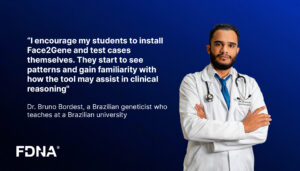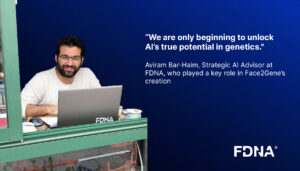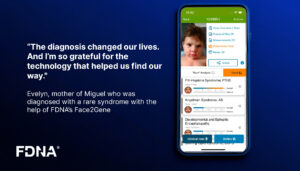March 7, 2016
Call for Research Proposals Issued at the American College of Medical Genetics and Genomics (ACMG) Annual Meeting 2016
FDNA Inc. (Boston, MA) issued today a call to geneticists to submit research proposals to the third cycle of the GIVE A FACE TO A SYNDROME research program. The announcement coincides with the American College of Medical Genetics and Genomics (ACMG) Annual Meeting.
The third cycle of this research program will focus on the use of FDNA’s standardized and deep phenotyping technology, available through Face2Gene, to associate phenotypic features with genetic variants, demonstrating the potential of improved diagnostic yield of variant analysis.
“After the overwhelmingly positive outcome of the two previous cycles, resulting in numerous publications, talks and abstracts in some of the most prestigious venues in the world, we decided to further strengthen our partnership with the genetic research community,” said Nicole Fleischer, Head of Research Collaborations at FDNA.
Individuals and institutions interested in joining the third cycle of the GIVE A FACE TO A SYNDROME research program should submit a short proposal by 5:00 PM Eastern time on June 30, 2015. The call for research proposals is available to all geneticists worldwide and does not include financial support. Study results will be shared with the scientific community and may serve as the basis for scientific publication by the collaborators. Collaborators will receive full credit for their participation in the program. Applicants are invited to submit proposals in this link https://fdna.com/rfp/
Questions can be directed to info(at)fdna.com, or stop by booth #505 at the American College of Medical Genetics and Genomics (ACMG) Annual Meeting in Tampa, Florida, March 9-11.


